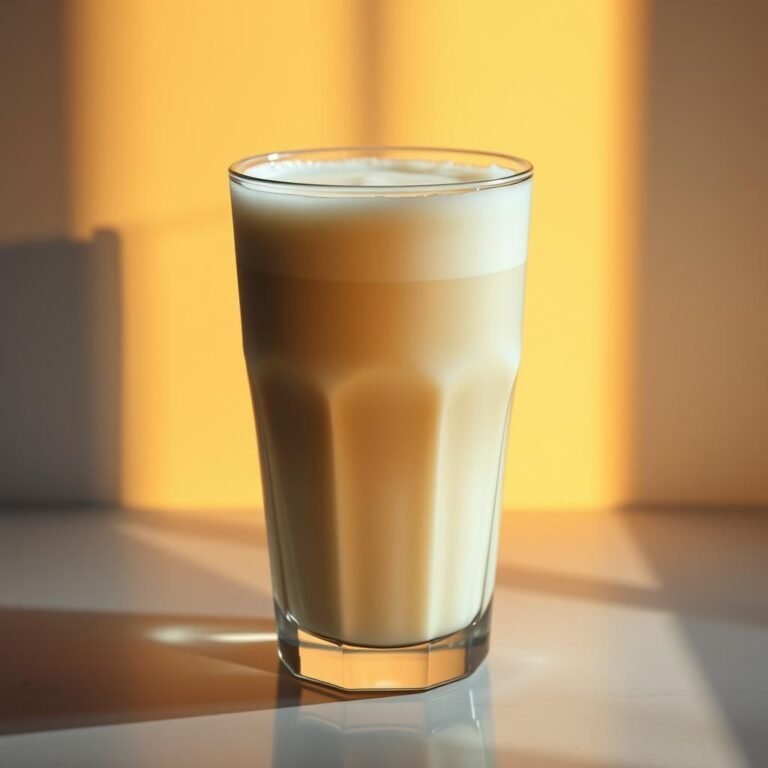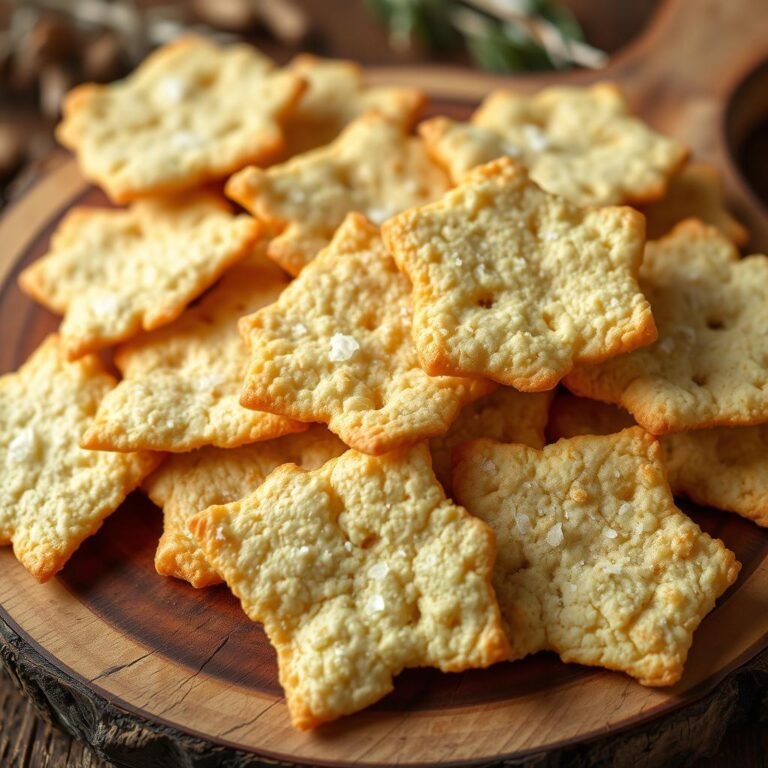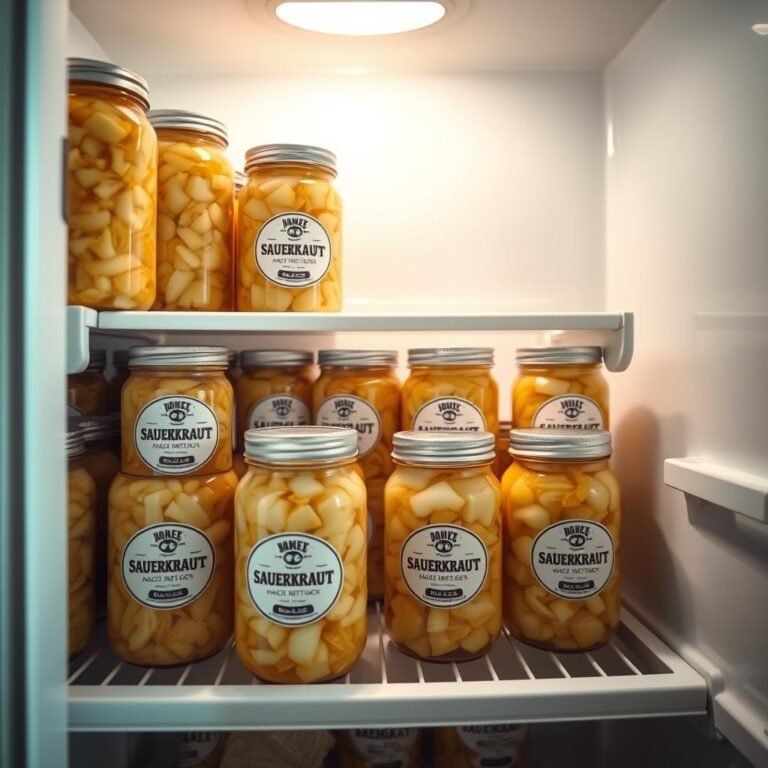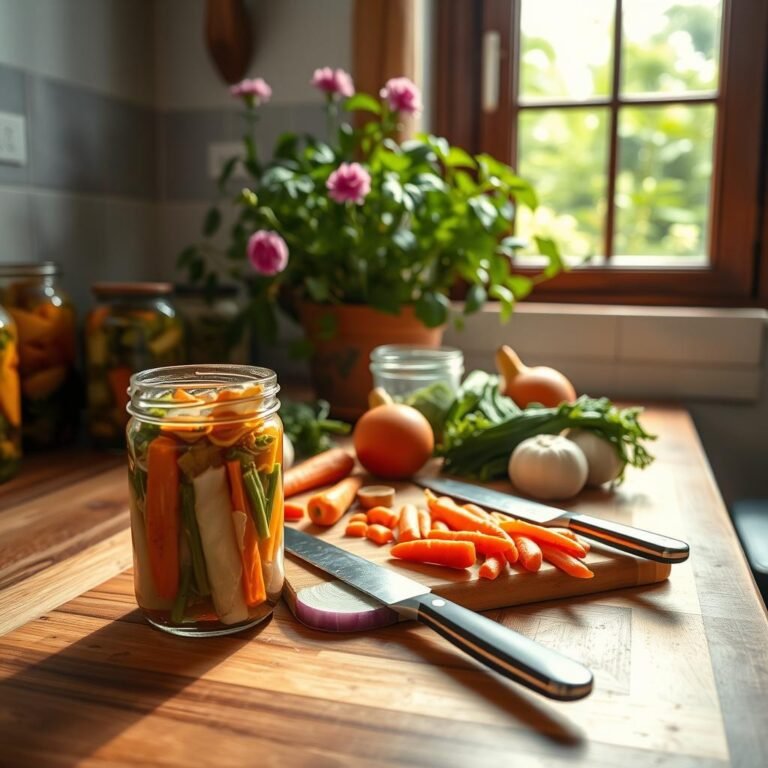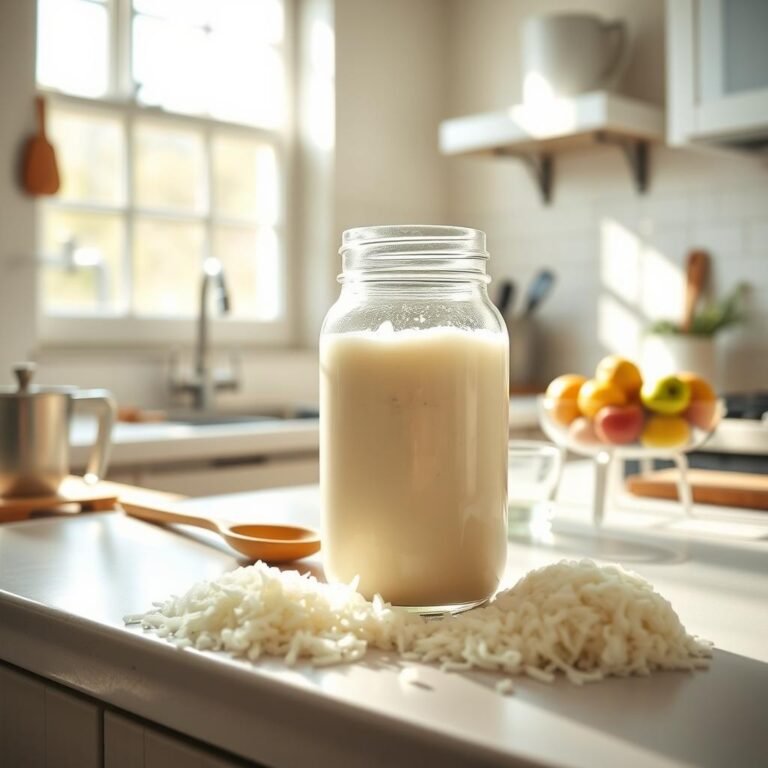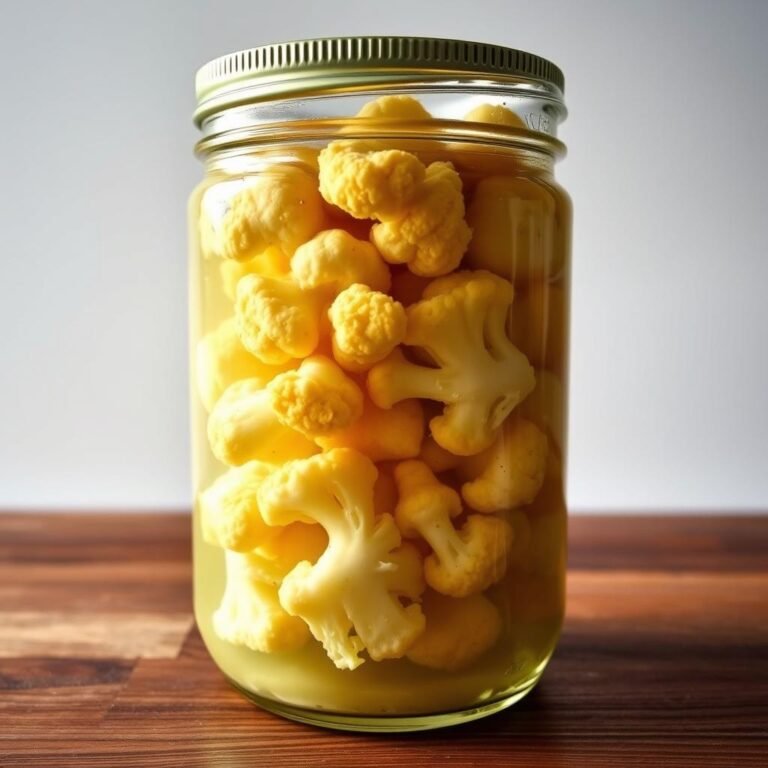Probiotic Rich Foods You Can Try for Gut Problems
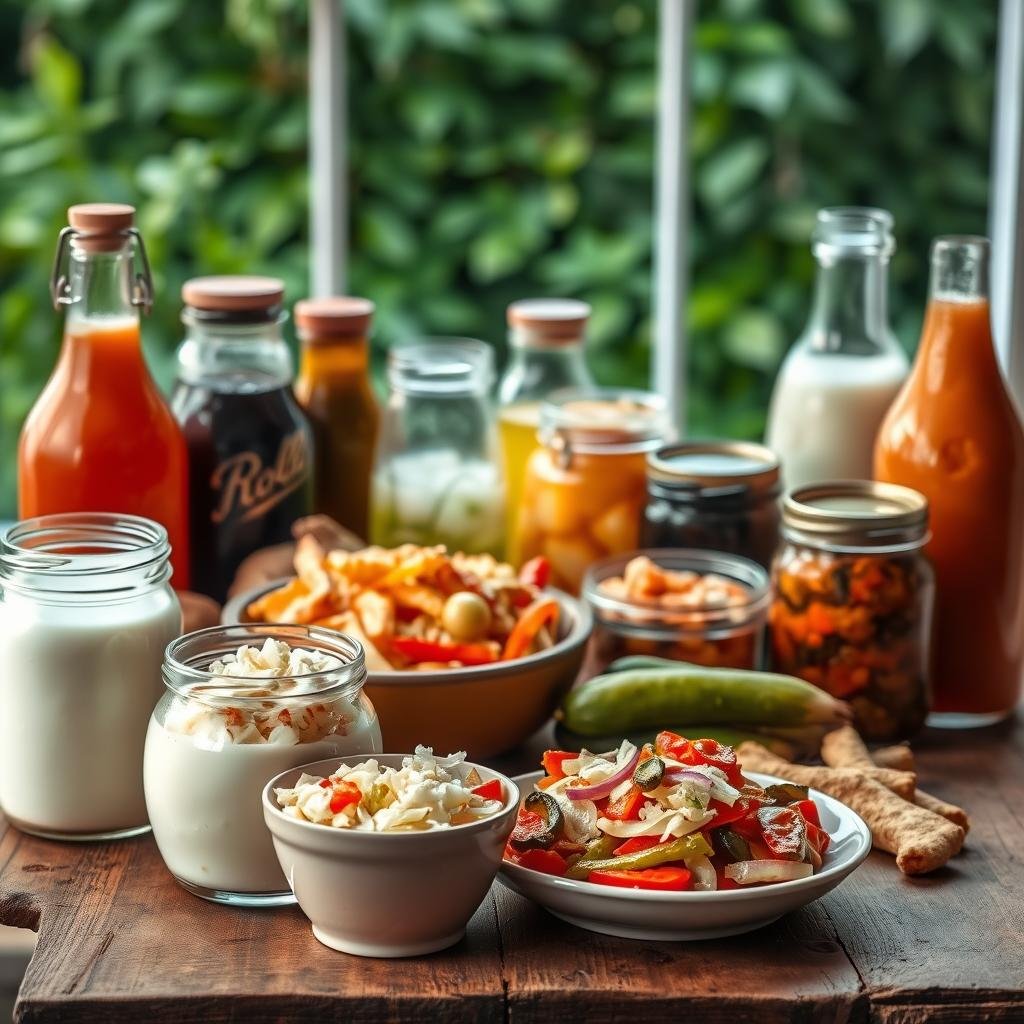
Keeping your digestive system healthy is key for feeling good. Eating probiotic rich foods is a great way to help your gut. These foods are full of live microorganisms that help your digestion and gut health.
Find out the best sources of probiotics for better digestion. You can try fermented veggies, yogurt, and aged soy products. These probiotic foods for gut health are important for good bacteria in your gut.
See the many probiotic rich foods you can add to your meals. They help improve your gut health and keep your microbiome balanced.
What Are Probiotics?
Probiotics are live microorganisms, mostly bacteria and yeasts. They offer health benefits when eaten in the right amounts. These good microbes are found in some foods and supplements. They help keep the gut flora in balance.
Definition and Function
“Probiotics” means the living bacteria and yeasts that are good for us. They mainly help our digestive system. Eating foods rich in probiotics keeps our gut microbiome balanced.
This balance is key for good digestion. Probiotics work by fighting off bad germs. They help us absorb nutrients better and keep the gut lining strong. This all helps our gut health.
Health Benefits
Knowing the benefits of probiotic foods can change your health routine. Eating them regularly helps with digestion. It can ease bloating, constipation, and diarrhea.
Probiotics also help with depression and anxiety by linking the gut to the brain. A healthy gut flora boosts our immune system. This makes our body stronger against infections and diseases.
Benefits of Probiotic Rich Foods
Eating foods rich in probiotics can make you healthier. These foods add good bacteria to your gut. This is key for digestion and health.
Increased Helpful Bacteria
Yogurt and kimchi add good bacteria to your gut. They replace lost bacteria from antibiotics or sickness. For more info, check out this guide on probiotic foods.
Strengthened Immune System
Eating probiotic-rich foods can also boost your immune system. They make your gut lining stronger. This stops bad bacteria from getting in and causing sickness.
Decreased Inflammation
Probiotics also help lower inflammation. They make your gut acidic, killing bad bacteria and reducing inflammation. This helps with gut problems and keeps you healthy long-term.
Top Probiotic Foods for Gut Health
Eating top probiotic foods can make your digestion better and boost your health. This probiotic foods list shows some great choices.
Yogurt
Yogurt is full of good bacteria like lactic acid and bifidobacteria. Eating it often can help your digestion, make bones stronger, and improve heart health. It might also lower diabetes and cancer risks.
Kefir
Kefir is a great probiotic food too. This fermented milk drink has lots of good bacteria. It helps bones, digestion, and fights infections.
Sauerkraut
Sauerkraut, or fermented cabbage, is packed with fiber, vitamins C and K, and antioxidants. It’s good for your gut and eyes. Adding sauerkraut to your diet can improve your health.
Yogurt: A Versatile Source of Probiotics
Yogurt is a favorite for many because it’s full of good bacteria. It’s made by fermenting milk with helpful bacteria. This makes it tasty and good for your health.
Types of Yogurt
There are many types of yogurt to choose from. Greek yogurt is thick and has lots of protein. It’s great for those who want to stay healthy.
Conventional yogurt is smooth and comes in many flavors. It’s perfect for anyone who likes trying new tastes.
Health Benefits
Yogurt is good for your body in many ways. It helps your digestion by breaking down food better. This is thanks to the good bacteria in it.
Yogurt also helps lower the chance of getting type 2 diabetes. The probiotics in yogurt boost your immune system and improve your gut health.
Kefir: A Potent Probiotic Drink
Kefir is becoming very popular as a strong probiotic drink. It’s a fermented milk drink full of good bacteria and yeasts. These help a lot with gut health.
One big kefir benefit is better digestion. It has lots of probiotics. These keep your gut healthy and help you digest food well.
Kefir also helps your bones by giving them important nutrients. It has calcium, magnesium, and vitamin K2. These help make your bones strong and prevent breaks, which is good for older people.
But kefir does more than just help your gut and bones. It also protects you from getting sick. The different kinds of probiotics in kefir make your immune system stronger. This helps your body fight off bad germs.
| Health Benefits | Description |
|---|---|
| Digestive Aid | Maintains a balanced gut flora for efficient digestion. |
| Bone Health | Provides essential nutrients that enhance bone density. |
| Immune System Support | Boosts immunity to fight off infections and disease. |
With all these great kefir benefits, it’s easy to see why it’s a favorite in many healthy homes.
Fermented Vegetables: Sauerkraut and Kimchi
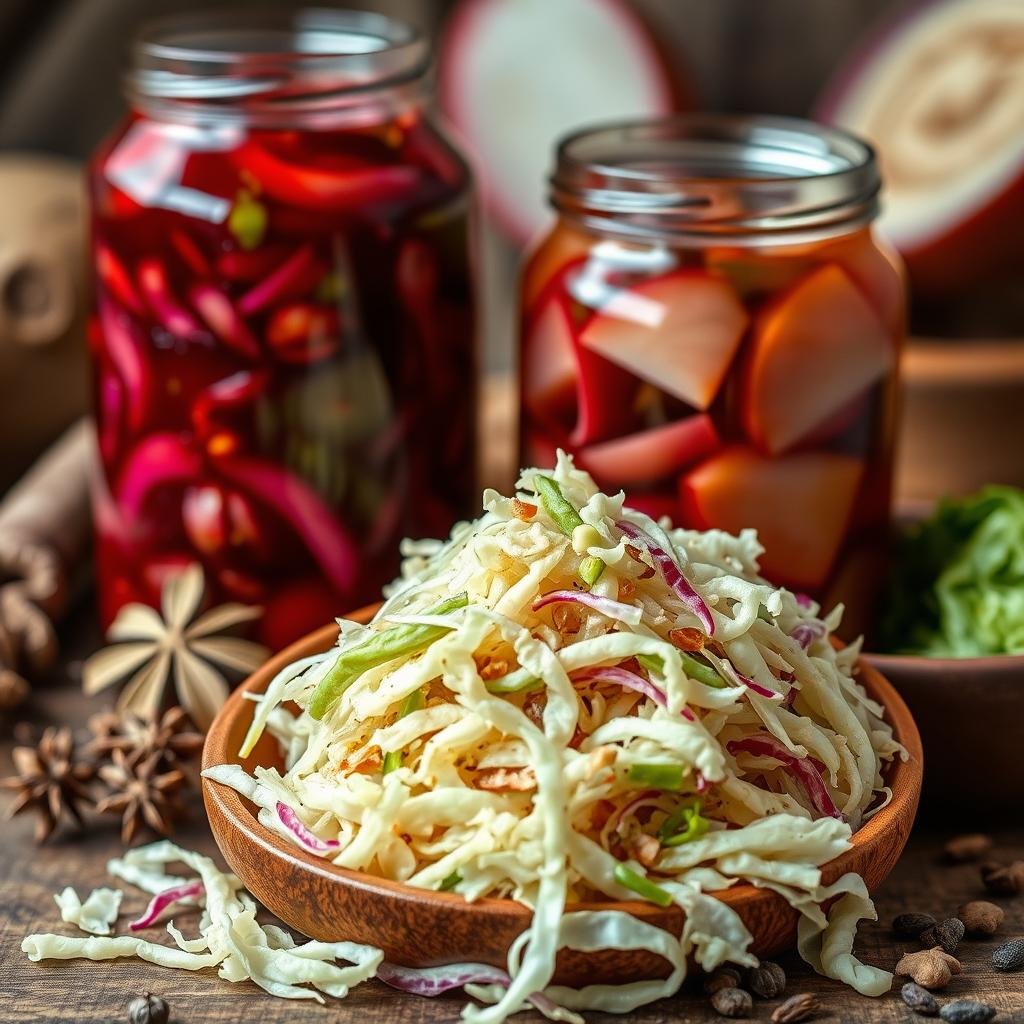
Fermented veggies like sauerkraut and kimchi are loved for their health benefits. They are full of good bacteria and taste great. These foods help keep your gut healthy and boost your overall well-being.
Sauerkraut
Sauerkraut comes from fermented cabbage and is a big part of German food. It’s low in calories but full of fiber, vitamins C and K. It’s also packed with nutrients.
One of the best sauerkraut benefits is its antioxidants. These help your eyes stay healthy. Plus, it’s good for your digestion, thanks to its probiotics.
Kimchi
Kimchi is a spicy Korean dish made from fermented veggies, like cabbage and radishes. It’s not just tasty; it’s also very healthy. Eating kimchi can help lower your cholesterol and make your body more sensitive to insulin.
It’s also great for your gut. This can help if you have irritable bowel syndrome (IBS).
| Nutrient/Benefit | Sauerkraut | Kimchi |
|---|---|---|
| Caloric Content | Low | Low |
| Key Vitamins | Vitamins C and K | Vitamins A and C |
| Main Ingredient | Fermented Cabbage | Fermented Cabbage and Radishes |
| Digestive Health | Supports Digestion | Improves Gut Health |
| Additional Benefits | Eye health, Antioxidants | Lower Cholesterol, Reduce Insulin Resistance |
Probiotic Benefits of Aged and Fermented Soy Products
Aged and fermented soy products, like miso and tempeh, are great for your gut. They are loved for their taste and for helping your digestive system stay healthy.
Miso
Miso is a key part of Japanese food. It’s made by fermenting soybeans with salt and koji. This process makes it very healthy.
The main miso benefits are better digestion and a stronger immune system. It also has important enzymes, vitamins, and minerals. You can add miso to soups, dressings, or marinades easily.
Tempeh
Tempeh comes from Indonesia and is a favorite for its health benefits. It’s made by fermenting soybeans, making proteins easier to digest. This also makes nutrients more available.
The tempeh benefits include better gut health, stronger bones, and lower cholesterol. You can grill, bake, or add it to stir-fries. It makes your meals healthier and tastier.
| Product | Main Probiotic Benefits | Key Nutrients |
|---|---|---|
| Miso | Improved digestion, enhanced immune function | Enzymes, vitamins, minerals |
| Tempeh | Better gut health, supports bone density, cholesterol reduction | High protein, digestible nutrients |
Common Probiotic Rich Foods
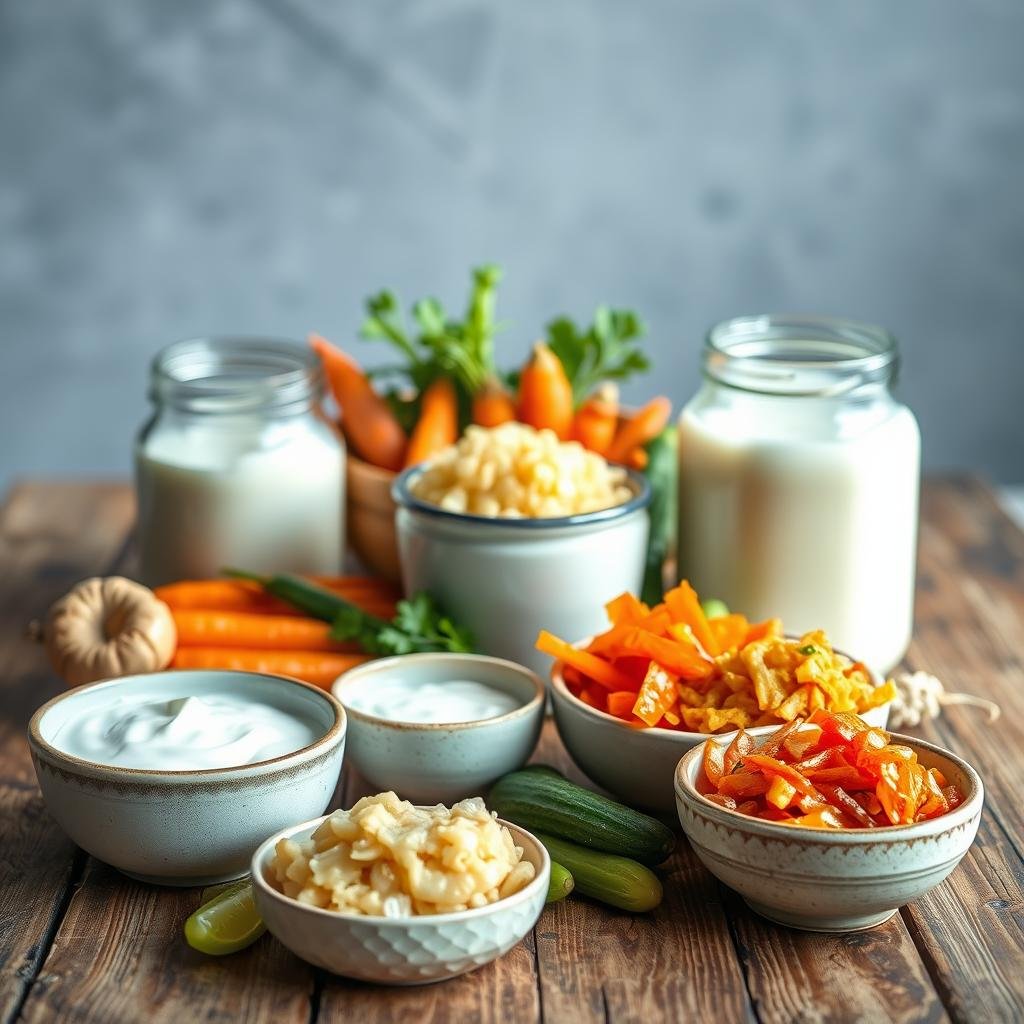
Yogurt and sauerkraut are not the only probiotic foods. Pickles, buttermilk, and some cheeses are also good. They are easy to add to your meals and help your gut health a lot.
Pickles are great for adding probiotics to your diet. They add crunch and good bacteria to your meals. Choose fermented pickles for the best health benefits.
Buttermilk is also a good choice. It’s fermented and can help lower cancer risks. It’s easy to add to foods like pancakes or smoothies.
Certain cheeses like Swiss and cheddar are full of probiotics. They also have lots of protein and calcium. These cheeses are a tasty way to get more probiotics.
- Kefir: A fermented milk drink with lots of good bacteria, available in dairy and non-dairy forms.
- Kimchi: A Korean dish made from fermented veggies. It boosts your immune system and lowers cancer risks.
- Kombucha: A fermented drink full of antioxidants and good bacteria. It’s great for a probiotic diet.
For a full list of probiotic foods and their benefits, check out this guide.
How to Incorporate Probiotic Foods into Your Diet
Adding probiotic-rich foods to your daily meals can boost your gut health and overall health. Here are some easy ways and tips to add these foods to your meals.
Meal Ideas
- Breakfast: Begin with yogurt that has live cultures, topped with fruits and nuts.
- Snacks: Enjoy a serving of sauerkraut or kimchi for a tangy snack.
- Drinks: Add kefir to smoothies or drink it alone for a morning probiotic boost. Find more probiotic meal ideas here.
- Dinner: Use tempeh in stir-fries or salads for a probiotic-rich dinner.
Tips and Tricks
- Gradual Introduction: Start with small amounts of probiotic foods and slowly increase them.
- Diverse Sources: Mix different probiotic foods like yogurt, kefir, sauerkraut, and tempeh for a variety of bacteria.
- Flavor Boost: Use fermented veggies as condiments to add flavor and nutrition to your meals.
- Consistency: Aim to have at least one probiotic-rich food every day for better gut health.
For more ideas, explore various recipes and meal plans that focus on gut health.
Kombucha: A Popular Fermented Tea

Kombucha is a fizzy, tangy tea that’s getting more popular in the US. It’s made by fermenting sweet tea with special bacteria and yeast. This drink is not only tasty but also packed with nutrients.
Kombucha is great for your digestion. It has probiotics from the fermentation process. These good bacteria help keep your gut healthy. Drinking kombucha regularly can make you feel more alive and full of energy.
Kombucha is also good for your liver. It’s full of antioxidants that fight off bad stuff in your body. This tea can help your liver work better, which is good for your overall health.
Some studies say kombucha might lower heart disease risk. The tea it’s made from, like black or green tea, has good stuff for your heart. This can help keep your heart healthy and lower heart disease risk.
Kombucha can also make you feel better mentally. It has B vitamins from the fermentation. These vitamins can help your mood and reduce stress. Kombucha might help you feel more positive and balanced.
Kombucha’s popularity in the US shows its many health benefits. It’s a tasty way to improve digestion, protect your liver, and boost your mood. Adding kombucha to your daily routine can be a fun and healthy choice.
Pickles: More Than Just a Sandwich Side
Pickles, or pickled cucumbers, are more than just a side for sandwiches. They are full of good bacteria thanks to a special process. This process helps keep your gut healthy, making pickles a great food to eat.
Pickles are also low in calories. This means you can add them to your meals without worrying about your diet. Plus, they are packed with vitamin K, which is good for your blood and bones.
But, it’s important to eat pickles in small amounts because they have a lot of salt. Eating them in moderation helps you get their health benefits without too much salt. Even with their salt, pickles are great for your digestion because of their probiotics.
| Fermented Food | Calories | Vitamin K | Probiotics |
|---|---|---|---|
| Pickles | 12 | 14% DV | High |
| Sauerkraut | 27 | 23% DV | High |
| Kimchi | 15 | 20% DV | High |
Cheese: Certain Varieties Offer Probiotic Benefits
Cheese is tasty and good for your health. Some cheeses have probiotics that help your digestion. This makes them great for your overall health.
Types of Cheese
Some cheeses have probiotics that are good for your gut. These include:
- Gouda
- Mozzarella
- Cheddar
These cheeses have live cultures. They help keep your digestive system healthy. For more info, check out the source here.
Nutritional Benefits
Cheese is not just good for your gut. It’s also full of important nutrients. Here are some cheese health benefits:
- High-quality proteins
- Vitamins such as A, D, and B12
- Essential minerals like calcium and phosphorus
These nutrients are good for your heart and bones. Eating probiotic cheese can make you feel better overall.
Combining Probiotics and Prebiotics for Optimal Gut Health
To get the best gut health, mix probiotics and prebiotics in your diet. Probiotics add good bacteria to your gut. Prebiotics feed these bacteria, helping them grow and work well.
Probiotic-rich foods like yogurt, kefir, and kimchi go well with prebiotic foods like bananas, onions, and garlic. Try yogurt with bananas for breakfast or garlic and onions in miso soup. This mix helps your gut bacteria and boosts nutrient absorption.
Adding probiotics and prebiotics to your daily meals can greatly improve digestion. Eat a variety of these foods to get the most benefits. A balanced gut is essential for good health, and probiotics and prebiotics work together to achieve it.
